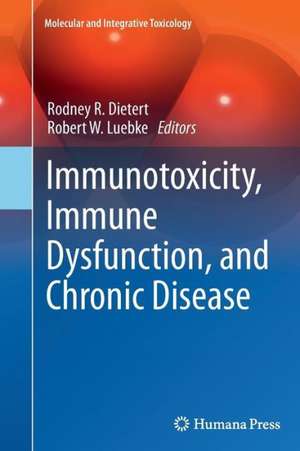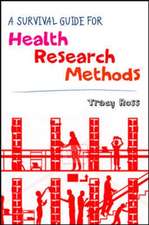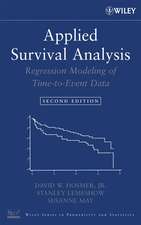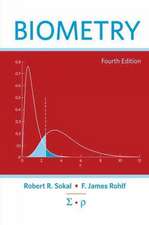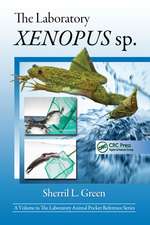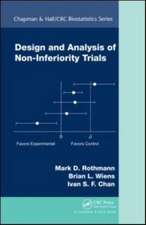Immunotoxicity, Immune Dysfunction, and Chronic Disease: Molecular and Integrative Toxicology
Editat de Rodney R. Dietert, Robert W. Luebkeen Limba Engleză Paperback – 11 iun 2014
To date, most considerations of the issue have approached the topic from the vantage point that chronic diseases are a myriad of largely unconnected diseases and conditions arising in diverse tissues, organs and physiological systems. This book, Immunotoxicity, Immune Dysfuction, and Chronic Disease, deviates from that prior model. It considers the interconnectivity of chronic diseases with both environmental insult of the immune system and subsequent immune dysfunction and inflammatory dysregulation as theunderlying basis for many, if not most, chronic diseases.
This change in the perception of environment-immune linkages to chronic disease is significant and has immediate implications both for the prevention of disease as well as for the development of more effective therapeutic approaches. Rather than considering environmental factors and types of reported immune alterations (e.g., depressed humoral immunity) as is common in books involving immunotoxicity, the present book approaches the environment-immune-disease triad from the standpoint of the disease. Each chapter emphasizes one or more specific immune dysfunction-based chronic disease(s) or condition(s) (e.g., asthma, atherosclerosis, multiple sclerosis, lupus) and describes: 1) the suggested environmental risk factors, 2) the underlying immune dysfunction(s) associated with the disease and 3) the overall health consequences of the disease.
This book isan early entry for a new Toxicology book series for Springer titled: Molecular and Integrative Toxicology (MaIT). The series will feature detailed research information, but in the context of a more integrative or holistic framework. As part of this framework, the chapters will contain a section on ”Key Points” as well as “Recommendations” where appropriate. The goal is to cover the most timely, state-of-the-art issues in toxicology as well as to ensure that the information is maximally accessible for research scientists, teachers, physicians and students.
We are particularly grateful to the numerous chapter authors for providing comprehensive and expert disease-oriented contributions. We are also appreciative of their willingness to consider their material not as disparate pieces of what has become a major health crisis, but rather as key pieces in a network of apparently interconnected health challenges.
| Toate formatele și edițiile | Preț | Express |
|---|---|---|
| Paperback (1) | 788.14 lei 6-8 săpt. | |
| Humana Press Inc. – 11 iun 2014 | 788.14 lei 6-8 săpt. | |
| Hardback (1) | 1109.44 lei 6-8 săpt. | |
| Humana Press Inc. – 24 mai 2012 | 1109.44 lei 6-8 săpt. |
Din seria Molecular and Integrative Toxicology
- 5%
 Preț: 1113.83 lei
Preț: 1113.83 lei - 5%
 Preț: 1462.18 lei
Preț: 1462.18 lei - 5%
 Preț: 1099.20 lei
Preț: 1099.20 lei - 5%
 Preț: 1094.16 lei
Preț: 1094.16 lei - 5%
 Preț: 1424.89 lei
Preț: 1424.89 lei - 5%
 Preț: 1102.67 lei
Preț: 1102.67 lei - 5%
 Preț: 727.97 lei
Preț: 727.97 lei - 5%
 Preț: 1301.22 lei
Preț: 1301.22 lei - 5%
 Preț: 1431.30 lei
Preț: 1431.30 lei - 5%
 Preț: 1106.86 lei
Preț: 1106.86 lei - 5%
 Preț: 1110.17 lei
Preț: 1110.17 lei - 5%
 Preț: 1292.67 lei
Preț: 1292.67 lei - 5%
 Preț: 1100.64 lei
Preț: 1100.64 lei - 5%
 Preț: 1301.24 lei
Preț: 1301.24 lei - 5%
 Preț: 736.20 lei
Preț: 736.20 lei - 5%
 Preț: 1090.97 lei
Preț: 1090.97 lei - 5%
 Preț: 1102.54 lei
Preț: 1102.54 lei - 5%
 Preț: 1024.03 lei
Preț: 1024.03 lei
Preț: 788.14 lei
Preț vechi: 829.63 lei
-5% Nou
Puncte Express: 1182
Preț estimativ în valută:
150.82€ • 161.27$ • 125.74£
150.82€ • 161.27$ • 125.74£
Carte tipărită la comandă
Livrare economică 18 aprilie-02 mai
Preluare comenzi: 021 569.72.76
Specificații
ISBN-13: 9781627039260
ISBN-10: 1627039260
Pagini: 468
Ilustrații: XVI, 452 p.
Dimensiuni: 155 x 235 x 25 mm
Greutate: 0.65 kg
Ediția:2012
Editura: Humana Press Inc.
Colecția Humana
Seria Molecular and Integrative Toxicology
Locul publicării:Totowa, NJ, United States
ISBN-10: 1627039260
Pagini: 468
Ilustrații: XVI, 452 p.
Dimensiuni: 155 x 235 x 25 mm
Greutate: 0.65 kg
Ediția:2012
Editura: Humana Press Inc.
Colecția Humana
Seria Molecular and Integrative Toxicology
Locul publicării:Totowa, NJ, United States
Public țintă
Professional/practitionerCuprins
Introduction to Immunotoxicity.- The Environment-Immune Route to Chronic Disease.- Asthma and Respiratory Allergies.- Cutaneous Allergies.- Food Allergies.- Factors Involved in Onset of Type1 Diabetes.- Rheumatoid Arthritis.- Environment, Immune Dysfunction and Systemic Lupus Erythematosus.- Multiple Sclerosis, Alzheimer’s Disease and Inflammation: A Hypothetical View.- Immune Dysfunction in Autism Spectrum Disorders.- Atherosclerosis and Inflammatory Heart Disease.- Inflammatory Bowel Disease and Celiac Disease: Environmental Risks Factors and Consequences.- COPD and Other Inflammatory Diseases of the Lung: Focus on AhR signaling.- Environment, the Immune System, and Depression: An Integrative Review and Discussion of the Infection-Defense Hypothesis.- Cancer – Childhood Acute Leukemia.- Environmental Toxicants and Susceptibility to Infection.- Reducing the Prevalence of Immune-Based Chronic Disease.
Recenzii
“The format of each chapter, starting with an abstract and key points on the first page followed by the body of the text, facilitates isolated reading of each chapter without the requirement for prior knowledge of the rest of the book … . The editors and contributors have created an interesting textbook which, as well as informing the immunotoxicologist, would be at home in the library of a range of institutes investigating any of the many diseases covered.” (Halima Moncrieffe, Immunology News, February, 2013)
Notă biografică
Rodney R. Dietert is Professor of Immunotoxicology at Cornell University, Ithaca, NY whose interests focus on the prevention of chronic diseases via patterns that first emerge in children. Dietert’s recent books include: Strategies For Protecting Your Child's Immune System (World Scientific, Singapore, Hackensack, NJ, 2010) and Immunotoxicity Testing (as Editor) (Springer, NY, 2010). He previously directed Cornell's Program on Breast Cancer and Environmental Risk Factors and the Institute for Comparative and Environmental Toxicology and served as a Senior Fellow in Cornell’s Center for the Environment. Dietert recently served on panels for the Institute of Medicine (Agent Orange), the WHO (Immunotoxicology Risk Assessment) and the EPA (Trichloroethylene).
Robert W. Luebke is an immunotoxicologist with the U.S. Environmental Protection Agency in Research Triangle Park, NC whose research is focused on the consequences of exposure to environmental chemicals on immune system homeostasis and resistance to infectious disease, and the development of alternative testing methods for high throughput screening of chemicals for immune system toxicity. He has authored numerous book chapters on immunotoxicology and immunotoxicology methods and served as senior editor of the third edition of Immunotoxicology and Immunopharmacology (CRC Press, Boca Raton, FL, 2007). Recent service activities include membership on a core writing group for the WHO Harmonized Immunotoxicity Risk Assessment Guidelines and the Organization for Economic Cooperation and Development’s Technical Guidance 443, the Extended One-Generation Reproductive Toxicity Study.
Robert W. Luebke is an immunotoxicologist with the U.S. Environmental Protection Agency in Research Triangle Park, NC whose research is focused on the consequences of exposure to environmental chemicals on immune system homeostasis and resistance to infectious disease, and the development of alternative testing methods for high throughput screening of chemicals for immune system toxicity. He has authored numerous book chapters on immunotoxicology and immunotoxicology methods and served as senior editor of the third edition of Immunotoxicology and Immunopharmacology (CRC Press, Boca Raton, FL, 2007). Recent service activities include membership on a core writing group for the WHO Harmonized Immunotoxicity Risk Assessment Guidelines and the Organization for Economic Cooperation and Development’s Technical Guidance 443, the Extended One-Generation Reproductive Toxicity Study.
Textul de pe ultima copertă
Immunotoxicity, Immune Dysfunction, and Chronic Disease is among the first books to illustrate the linkage between environmental risk factors (e.g., chemicals, drugs, diet, lifestyles), environmentally-induced immune dysfunction and the full range of resulting chronic diseases and conditions. There is a detailed discussion of specific immune-based chronic diseases and conditions that emerge in children and adults and affect different physiological systems. The book integrates a consideration of risk factors and specific immunotoxic alterations with disease outcomes. A significant number of diseases and conditions are discussed, such as systemic allergic diseases affecting the lung, skin and gastrointestinal tract, systemic autoimmune diseases (type 1 diabetes,multiple sclerosis and lupus) and chronic conditions that are not traditionally associated with chemically-mediated immunomodulation (depression, frailty, and atherosclerosis). Inflammatory dysregulation is a commonthread that connects many of the diseases and conditions discussed in this book and provides a central focus. Individual chapters are organized by disease with the addition of chapters that provide integrative information on: 1) patterns of disease comorbidities and 2) the safety testing of chemicals and drugs to reduce the risk of immune dysfunction. Each chapter contains a summary of key points as well as recommendations when appropriate. The book stresses the benefits of identifying the environmental risk factors of immune-mediated chronic disease and the potential to reduce the prevalence of these diseases and conditions. This volume is a valuable resource for researchers, clinicians, risk assessors and regulators and students.
Caracteristici
Emphasizes one or more specific immune dysfunction-based chronic disease(s) or condition(s) Describes suggested environmental risk factors, underlying immune dysfunction(s) associated with the disease and the overall health consequences of the disease Comprehensive in scope
